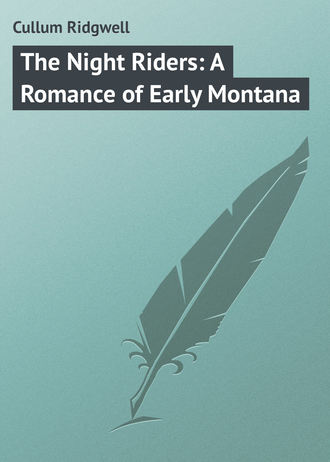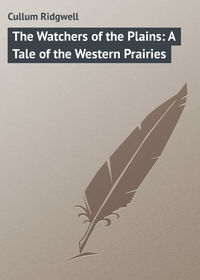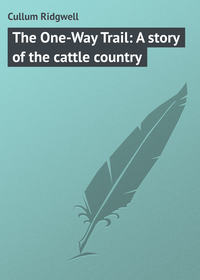 полная версия
полная версияThe Night Riders: A Romance of Early Montana
Joe’s homily banished the last shadow of Tresler’s ill-humor. The little man had had the best of him in his quiet, half-drunken manner; a manner which, though rough, was still irresistible.
“That’s all right, Joe. I’m no match for you,” he said with a laugh. “But, setting jokes on one side, I think you’re in for trouble with Jake. I saw it in his eye before I started out.”
“I don’t think. Guess I’m plumb sure,” Joe replied quietly.
“Then why on earth did you do it?”
Joe humped his back with a movement expressive of unconcern.
“It don’t matter why. Jake’s nigh killed me ha’f a dozen times. One o’ these days he’ll fix me sure. He’ll lace hell out o’ me to-morrow, I’m guessin’, an’ when it’s done it won’t alter nothin’ anyways. I’ve jest two things in this world, I notion, an’ – one of ’em’s drink. ’Tain’t no use in sayin’ it ain’t, ’cos I guess my legs is most unnateral truthful ’bout drink. Say, I don’t worrit no folk when I’m drunk; guess I don’t interfere wi’ no one’s consarns when I’m drunk; I’m jest kind o’ happy when I’m drunk. Which bein’ so, makes it no one’s bizness but my own. I do it ’cos I gits a heap o’ pleasure out o’ it. I know I ain’t worth hell room. But I got my notions, an’ I ain’t goin’ ter budge fer no one.” Joe’s slantwise mouth was set obstinately; his little eyes flashed angrily in the moonlight, and his whole attitude was one of a man combating an argument which his soul is set against.
As Tresler had no idea of arguing the question and remained silent, the choreman went on in a modified tone of morbid self-sympathy sympathy —
“When the time comes around I’ll hand over my checks wi’out no fuss nor botheration; guess I’ll cash in wi’ as much grit as George Washington. I don’t calc’late as life is wuth worritin’ over anyways. We don’t ast to be born, an’, comin’ into the world wi’out no by-your-leave, I don’t figger as folks has a right to say we’ve got to take a hand in any bluff we don’t notion.”
“Perhaps you’ve a certain amount of right on your side.” Tresler felt that this hopeless pessimism was rather the result of drink than natural to him. “But you said you had two things that you considered worth living for?”
“That’s so. I ain’t goin’ back on what I said. It’s jest that other what set me yarnin’. Say, guess you’re mostly a pretty decent feller, Tresler, though I ’lows you has failin’s. You’re kind o’ young. Now I guess you ain’t never pumped lead into the other feller, which the same he’s doin’ satisfact’ry by you? You kind o’ like most fellers?”
Tresler nodded.
“Jest so. But I’ve noticed you don’t fancy folks as gits gay wi’ you. You kind o’ make things uneasy. Wal, that’s a fault you’ll git over. Mebbe, later on, when a feller gits rilin’ you you’ll work your gun, instead of trying to thump savee into his head. Heads is mighty cur’us out west here. They’re so chock full o’ savee, ther’ ain’t no use in thumpin’ more into ’em. Et’s a heap easier to let it out. But that’s on the side. I most gener’ly see things, an’ kind o’ notice fellers, an’ that’s how I sized you up. Y’ see I’ve done a heap o’ settin’ around M’skeeter Bend fer nigh on ten years, mostly watchin’. Now, mebbe, y’ ain’t never sot no plant, an’ bedded it gentle wi’ sifted mould, an’ watered it careful, an’ sot right ther’ on a box, an’ watched it grow in a spot wher’ ther’ wa’n’t no bizness fer anythin’ but weeds?”
Tresler shook his head, wonderingly.
“No; guess not,” Joe went on. “Say,” he added, turning and looking earnestly into his companion’s face, “I’m settin’ on that box right now. Yes, sir, I’ve watched that plant grow. I’ve picked the stones out so the young shoots could git through nice an’ easy-like. I’ve watered it. I’ve washened the leaves when the blights come along. I’ve sticked it against the winds. I’ve done most everythin’ I could, usin’ soap-suds and soot waters, an’ all them tasty liquids to coax it on. I’ve sot ther’ a-smilin’ to see the lovesome buds come along an’ open out, an’ make the air sweet wi’ perfumes an’ color an’ things. I’ve sot right ther’ an’ tho’t an’ tho’t a heap o’ tho’ts around that flower, an’ felt all crinkly up the back wi’ pleasure. An’ I ain’t never wanted ter leave that box. No, sir, an’ the days wus bright, an’ nothin’ seemed amiss wi’ life nor nothin’. But I tell you it ain’t no good. No, sir, ’tain’t no good, ’cos I ain’t got the guts to git up an’ dig hard. I’ve reached out an’ pulled a weed or two, but them weeds had got a holt on that bed ’fore I sot the seedlin’, an’ they’ve growed till my pore flower is nigh to be choked. ’Tain’t no use watchin’ when weeds is growin’. It wants a feller as can dig; an’ I guess I ain’t that feller. Say, ther’s mighty hard diggin’ to be done right now, an’ the feller as does it has got to do it standin’ right up to the job. Savee? I’m sayin’ right now to you, Tresler, them weeds is chokin’ the life out o’ her. She’s mazed up wi’ ’em. Ther’ ain’t no escape. None. Her life’s bound to be hell anyways.”
“Her? Whom?” Tresler asked the question, but he knew that Joe was referring to Diane; Diane’s welfare was his other interest in life.
The little man turned with a start “Eh? Miss Dianny – o’ course.”
“And the weeds?”
“Jake – an’ her father.”
And the two men became silent, while their horses ambled leisurely on toward home. It was Tresler who broke the silence at last.
“And this is the reason you’ve stayed so long on the ranch?” he asked.
“Mebbe. I don’t reckon as I could ’a’ done much,” Joe answered hopelessly. “What could a drunken choreman do anyways? Leastways the pore kid hadn’t got no mother, an’ I guess ther’ wa’n’t a blazin’ soul around as she could yarn her troubles to. When she got fixed, I guess ther’ wa’n’t no one to put her right. And when things was hatchin’, ther’ wa’n’t no one to give her warnin’ but me. ‘What is the trouble?’ you ast,” the little man went on gloomily. “Trouble? Wal, I’d smile. Ther’ ain’t nothin’ but trouble around M’skeeter Bend, sure. Trouble for her – trouble all round. Her trouble’s her father, an’ Jake. Jake’s set on marryin’ her. Jake,” in a tone of withering scorn, “who’s only fit to mate wi’ a bitch wolf. An’ her father – say, he hates her. Hates her like a neche hates a rattler. An’ fer why? Gawd only knows; I ain’t never found out. Say, that gal is his slave, sure. Ef she raises her voice, she gits it. Not, I guess, as Jake handles me, but wi’ the sneakin’ way of a devil. Say, the things he does makes me most ready to cry like a kid. An’ all the time he threatens her wi’ Jake fer a husband. An’ she don’t never complain. Not she; no sir. You don’t know the blind hulks, Tresler; but ther’, it ain’t no use in gassin’. He don’t never mean her fer Jake, an’ I guess she knows it. But she’s plumb scared, anyways.”
Tresler contemplated the speaker earnestly in the moonlight. He marveled at the quaint outward form of the chivalrous spirit within. He was trying to reconcile the antagonistic natures of which this strange little bundle of humanity was made up. For ten years Joe had put up with the bullying and physical brutality of Jake Harnach, so that, in however small a way, he might help to make easy the rough life-path of a lonely girl. And his motives were all unselfish. A latent chivalry held him which no depths of drunkenness could drown. He leant over and held out his hand.
“Joe,” he said, “I want to shake hands with you and call you my friend.”
The choreman held back for a moment in some confusion. Then, as though moved by sudden impulse, he gripped the hand so cordially offered.
“But I ain’t done yet,” he said a moment later. He had no wish to advertise his own good deeds. He was pleading for another. Some one who could not plead for herself. His tone had assumed a roughness hardly in keeping with the gentle, reflective manner in which he had talked of his “flower.” “Tresler,” he went on, “y’re good stuff, but y’ ain’t good ’nough to dust that gal’s boots, no – not by a sight. Meanin’ no offense. But she needs the help o’ some one as’ll dig at them weeds standin’. See? Which means you. I can’t tell you all I know, I can’t tell you all I’ve seed. One o’ them things – I guess on’y one – is that Jake’s goin’ to best blind hulks an’ force him into givin’ him his daughter in marriage, and Gawd help that pore gal. But I swar to Gawd ef I’m pollutin’ this airth on the day as sees Jake worritin’ Miss Dianny, I’ll perf’rate him till y’ can’t tell his dog-gone carkis from a parlor cinder-sifter.”
“Tell me how I can help, and count me in to the limit,” said Tresler, catching, in his eagerness, something of the other’s manner of expression.
It was evident by the way the choreman’s face lit up at his friend’s words that he had hoped for such support, but feared that he should not get it. Joe Nelson was distinctly worldly wise, but with a heart of gold deep down beneath his wisdom. He had made no mistake in this man whose sympathies he had succeeded in enlisting. He fully understood that he was dealing with just a plain, honest man, otherwise he would have kept silence.
“Wal, I guess ther’ ain’t a deal to tell.” The little man looked straight ahead toward the dark streak which marked the drop from the prairie land to the bed of the Mosquito River. “Still, it’s li’ble to come along right smart.”
The man’s suggestion puzzled Tresler, but he waited. His own mind was clear as to what he personally intended, but it seemed to him that Joe was troubled with other thoughts besides the main object of his discourse. And it was these very side issues that he was keen to learn. However, whatever Joe thought, whatever confusion or perplexity he might have been in, he suddenly returned to his main theme with great warmth of feeling.
“But when it comes, Tresler, you’ll stand by? You’ll plug hard fer her, jest as ef it was you he was tryin’ to do up? You’ll stop him? Say, you’ll jest round that gal up into your own corrals, an’ set your own brand on her quick, eh? That’s what I’m askin’.”
“I see. Marry her, eh?”
“An’ why not?” asked Joe quickly. “She’s a heap too good fer you. Ther’ ain’t a feller breathin’ amounts to a row o’ beans aside o’ her. But it’s the on’y way to save her from Jake. You’ll do it. Yes, sure, you’ll do it. I ken see it in your face.”
The little fellow was leaning over, peering up into Tresler’s face with anxious, almost fierce eyes. His emotion was intense, and at that moment a refusal would have driven him to despair.
“You are too swift for me, Joe,” Tresler said quietly. But his tone seemed to satisfy his companion, for the latter sat back in his saddle with a sigh of relief. “It takes the consent of two people to make a marriage. However,” he went on, with deep earnestness, “I’ll promise you this, Miss Marbolt shall never marry Jake unless it is her own wish to do so. And, furthermore, she shall never lack a friend, ready to act on her behalf, while I am in the country.”
“You’ve said it.”
And the finality of Joe’s tone brought silence.
In spite of the punishment he knew to be awaiting him, Joe was utterly happy. It was as though a weight, which had been oppressing him for years, had suddenly been lifted from his shoulders. He would cheerfully have ridden on to any terror ever conceived by the ruthless Jake. Diane’s welfare – Diane’s happiness; it was the key-note of his life. He had watched. He knew. Tresler was willing enough to marry her, and she – he chuckled joyfully to himself.
“Jake ain’t a dorg’s chance – a yaller dorg’s chance. When the ‘tenderfoot’ gits good an’ goin’ he’ll choke the life out o’ Master Jake. Gee!”
And Tresler, too, was busy with his thoughts. Joe’s suggestion had brought him face to face with hard fact, and, moreover, in a measure, he had pledged himself. Now he realized, after having listened to the little man’s story, how much he had fallen in love with Diane. Joe, he knew, loved her as a father might love his child, or a gardener his flowers; but his was the old, old story that brought him a delight such as he felt no one else had ever experienced. Yes, he knew now he loved Diane with all the strength of his powerful nature; and he knew, too, that there could be little doubt but that he had fallen a victim to the beautiful dark, sad face he had seen peering up at him from beneath the straw sun-hat, at the moment of their first meeting. Would he marry Diane? Ay – a thousand times ay – if she would have him. But there it was that he had more doubts than Joe. Would she marry him? he asked himself, and a chill damped the ardor of his thoughts.
And so, as they rode on, he argued out the old arguments of the lover; so he wrestled with all the old doubts and fears. So he became absorbed in an ardent train of thought which shut out all the serious issues which he felt, that, for his very love’s sake, he should have probed deeply. So he rode on impervious to the keen, studious, sidelong glances wise old, drunken old Joe favored him with; impervious to all, save the flame of love this wild old ranchman had fanned from a smouldering ember to a living fire; impervious to time and distance, until the man at his side, now thoroughly sobered, called his attention to their arrival at the ranch.
“Say, boy,” he observed, “that’s the barn yonder. ’Fore we git ther’ ther’s jest one thing more. Jake’s goin’ to play his hand by force. Savee? Mebbe we’ve a notion o’ that force – Miss Dianny an’ me – ”
“Yes, and we must think this thing thoroughly out, Joe. Developments must be our cue. We can do nothing but wait and be ready. There’s the sheriff – ”
“Eh? Sheriff?” Joe swung round, and was peering up into Tresler’s face.
“Ah, I forgot.” Tresler’s expression was very thoughtful. They had arrived at the barn, and were dismounting. “I was following out my own train of thought. I agree with you, Joe, Red Mask and his doings are at the bottom of this business.” His voice had dropped now to a low whisper lest any one should chance to be around.
Without a word Joe led his horse into the barn, and, off-saddling him, fixed him up for the night. Tresler did the same for his mare. Then they came out together. At the door Joe paused.
“Say,” he remarked simply, “I jest didn’t know you wus that smart.”
“Don’t credit me with smartness. It’s – poor little girl.”
“Ah!” Joe’s face twisted into his apish grin. “Say, you’ll stick to what you said?”
“Every word of it.”
“Good; the rest’s doin’ itself, sure.”
And they went their several ways; Joe to the kitchen of the house, and Tresler to his dusty mattress in the bunkhouse.
CHAPTER IX
TRESLER INVOLVES HIMSELF FURTHER; THE LADY JEZEBEL IN A FREAKISH MOOD
Enthusiasm is the mainspring of a cowboy’s life. Without enthusiasm a cowboy inevitably falls to the inglorious level of a “hired man”; a nice distinction in the social conditions of frontier life. The cowboy is sometimes a good man – not meaning a man of religion – and often a bad man. He is rarely indifferent. There are no half measures with him. His pride is in his craft. He will lavish the tenderness of a mother for her child upon his horse; he will play poker till he has had the doubtful satisfaction of seeing his last cent pass into somebody else’s pocket; he will drink on the most generous scale, and is ever ready to quarrel. Even in this last he believes in thoroughness. But he has many good points which often outweigh his baser instincts. They can be left to the imagination; for it is best to know the worst of him at the outset to get a proper, and not a glorified estimate of his true character. The object of this story is to give a veracious, and not a highly gilded picture of the hardy prairie man of days gone by.
Before all things the cowboy is a horseman. His pride in this almost amounts to a craze. His fastidiousness in horse-flesh, in his accoutrements, his boots, his chapps, his jaunty silk handkerchief about his neck, even to the gauntlets he so often wears upon his hands, is an education in dandyism. He is a thorough dandy in his outfit. And the greater the dandy, the more surely is he a capable horseman. He is not a horse-breaker by trade, but he loves “broncho-busting” as a boy loves his recreation. It comes to him as a relief from the tedium of branding, feeding, rounding up, cutting out, mending fences, and all the utility work of the ranch. Every unbroken colt is like a ticket in a lottery; it may be easy, or it may be a tartar. And the tartar is the prize that every cowpuncher wants to draw so that he may demonstrate his horsemanship.
Broncho-busting was the order of the next day at Mosquito Bend, and all hands were agog, and an element of general cheeriness pervaded the bunkhouse whilst breakfast was in preparation. Marbolt had obtained a contract to supply the troops with a large band of remounts, and the terms demanded that each animal must be saddle-broken.
Tresler, with the rest, was up betimes. He, too, was going to take his part in the horse-breaking. While breakfast was in the course of preparation he went out to overhaul his saddle. There must be no doubtful straps in his gear. Each saddle would have a heavy part to play, and his own, being one he had bought second-hand from one of his comrades, needed looking to.
He was very thoughtful as he went about his work. His overnight talk with Joe Nelson had made him realize that he was no longer a looker-on, a pupil, simply one of the hands on the ranch. Hitherto he had felt, in a measure, free in his actions. He could do as it pleased him to do. He could have severed himself from the ranch, and washed his hands of all that was doing there. Now it was different. Whether he would or no he must play out his part. He had taken a certain stand, and that stand involved him with responsibilities which he had no wish to shirk.
His saddle was in order, his mare had been rubbed down and fed, and he was leisurely strolling over to the bunkhouse for breakfast. And as he passed the foreman’s hut he heard Jake’s voice from within hailing him with unwonted cheeriness.
“Mornin’, Tresler,” he called out. “Late gettin’ in last night.”
Tresler moved over and stood in the doorway. He was wary of the tone, and answered coolly —
“Yes; the mare bolted this side of the ford, and took me ten miles south. When I got on the Forks trail I met Nelson on his way home.”
“Ah, that mare’s the very devil. How are you doin’ with her now?”
“Oh, so, so. She leads me a dance, but I’d rather have her than any plug you’ve got on the ranch. She’s the finest thing I’ve ever put a leg over.”
“Yes, guess that’s so. The boss was always struck on her. I kind of remember when she came. She wasn’t bred hereabouts. The old man bought her from some half-breed outfit goin’ through the country three years ago – that’s how he told me. Then we tried to break her. Say, you’ve done well with her, boy.”
Jake had been lacing up a pair of high field boots; they were massive things with heavy, clumped soles, iron tips and heels. Now he straightened up.
“Did Nelson say why he was late?” he went on abruptly.
“No. And I didn’t ask him.”
“Ah, knew it, I s’pose. Drunk?”
“No.”
Tresler felt that the lie was a justifiable one.
“Then what the devil kept the little swine?”
Jake’s brows suddenly lowered, and the savage tone was no less than the coarse brutality of his words. The other’s coolness grew more marked.
“That was none of my concern. He’d delivered the letter, and it was only left for me to hurry him home.”
“I’ll swear he was loafin’ around the saloon all day. Say, I guess I’ll see him later.”
Tresler shrugged and turned away. He wanted to tell this man what he thought of him. He felt positively murderous toward him. He had never met anybody who could so rouse him. Sooner or later a crisis would come, in spite of his reassurances to Diane, and then – Jake watched him go. Then he turned again to the contemplation of his great boots, and muttered to himself.
“It won’t be for long – no, not for long. But not yet. Ther’s too much hangin’ to it – ” He broke off, and his fierce eyes looked after the retreating man.
The unconscious object of these attentions meanwhile reached the bunkhouse. Breakfast was well on, and he had to take his pannikin and plate round to Teddy’s cookhouse to get his food. “Slushy,” as the cook was familiarly called, dipped him out a liberal measure of pork and beans, and handed him half a loaf of new-made bread. Jinks was no niggard, and Tresler was always welcome to all he needed.
“Goin’ to ride?” the youth demanded, as he filled the pannikin with tea.
“Why, of course.” Tresler had almost forgotten the change of work that had been set out for the day. His face brightened now as the cook reminded him of it. “Wouldn’t miss it for a lot. That mare of mine has given me a taste for that sort of thing.”
“Taste!” Teddy exclaimed, with a scornful wave of his dipper. “Belly full, I tho’t, mebbe.” He turned to his stove and shook the ashes down. “Say,” he went on, over his shoulder, “guess I’m bakin’ hash in mine. Ther’ ain’t so much glory, but ther’s a heap more comfort to it.”
Tresler passed out smiling at the youth’s ample philosophy. But the smile died out almost on the instant. A half-smothered cry reached him from somewhere in the direction of the barn. He stood for an instant with his brows knitted.
The next, and his movements became almost electrical.
Now the man’s deliberate character flatly contradicted itself. There was no pause for consideration, no thought for what was best to do. He had heard that cry, and had recognized the voice. It was a cry that summoned him, and wrung the depths of his heart. His breakfast was pitched to the ground. And, as though fate had ordained it, he beheld a heavy rawhide quirt lying on the ground where he had halted. He grabbed the cruel weapon up, and set off at a run in the direction whence the cry had come.
His feet were still encased in the soft moccasin slippers he usually wore in exchange for his riding boots, and, as he ran, they gave out no sound. It was a matter of fifty yards to the foreman’s hut, and he sprinted this in even time, keeping the building between himself and a direct view of the barn, in the region of which lay his destination. And as he ran the set expression of his face boded ill for some one. Jaws and mouth were clenched to a fierce rigidity that said far more than any words could have done.
He paused for one breathless instant at the hither side of the foreman’s hut. It was because he heard Jake’s voice cursing on the other side of it. Then he heard that which made his blood leap to his brain. It was a stifled cry in Nelson’s now almost unrecognizable voice. And its piteous appeal aroused in him a blind fury.
He charged round the building in half a dozen strides. One glance at the scene was sufficient. Poor old Joe Nelson was lying on the ground, his arms thrown out to protect his head, while Jake, his face ablaze, stood over him, kicking him with his cruel field boots, with a force and brutishness that promised to break every bone in the old man’s body.
It all came to him in a flash.
Then he leapt with a rush at the author of the unnatural scene. The butt of his quirt was uplifted. It swung above his head a full half-circle, then it descended with that whistling split of the air that told of the rage and force that impelled it. It took the giant square across the face, laying the flesh open and sending the blood spurting with its vicious impact. It sent him reeling backward with a howl of pain, like a child at the slash of an admonishing cane. And Jake’s hands went up to his wounds at once; but, even so, his movements were not swift enough to protect him from a second slash of the vengeful thong. And Tresler’s aim was so swift and sure that the bully fell to the ground like a pole-axed steer.
And with Jake’s fall the tension of Tresler’s rage relaxed. He could have carried the chastisement further with a certain wild delight, but he was no savage, only a real, human man, outraged and infuriated by the savagery of another. His one thought was for his poor old friend, and he dropped on his knees, and bent over the still, shrunken form in a painful anxiety. He called to him, and put one hand under the gray old head and raised it up. And as he did so the poor fellow’s eyes opened. Joe murmured something unintelligible, and Tresler was about to speak again, when a movement behind him changed his purpose and brought him to his feet with a leap.
Nor was he any too soon. And his rage lit anew as he saw Jake struggling to rise. In an instant he was standing over him threateningly.









